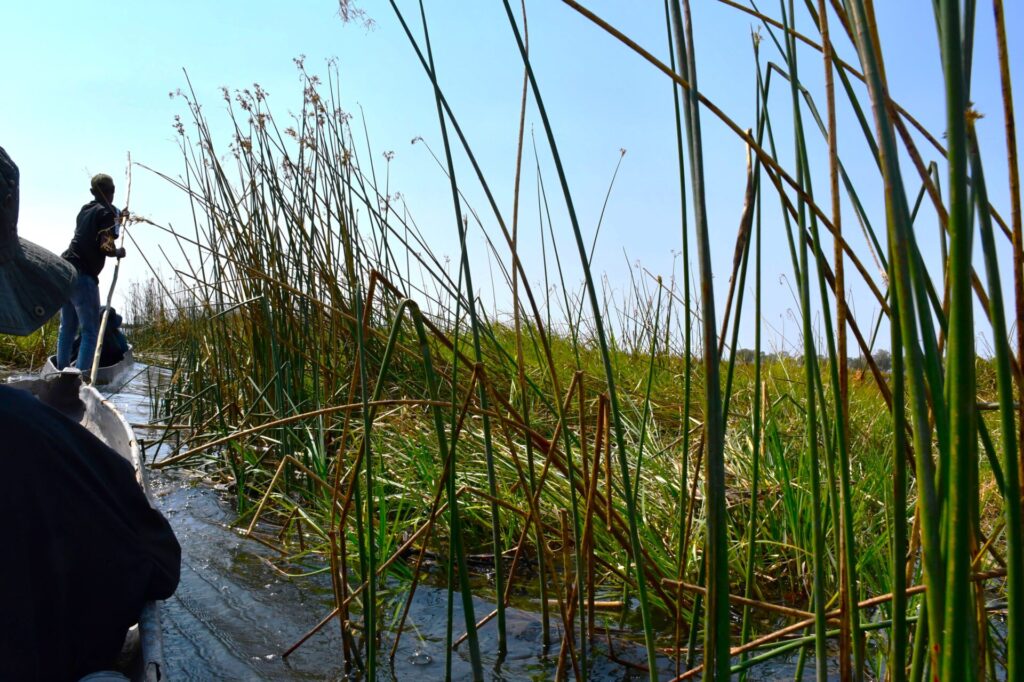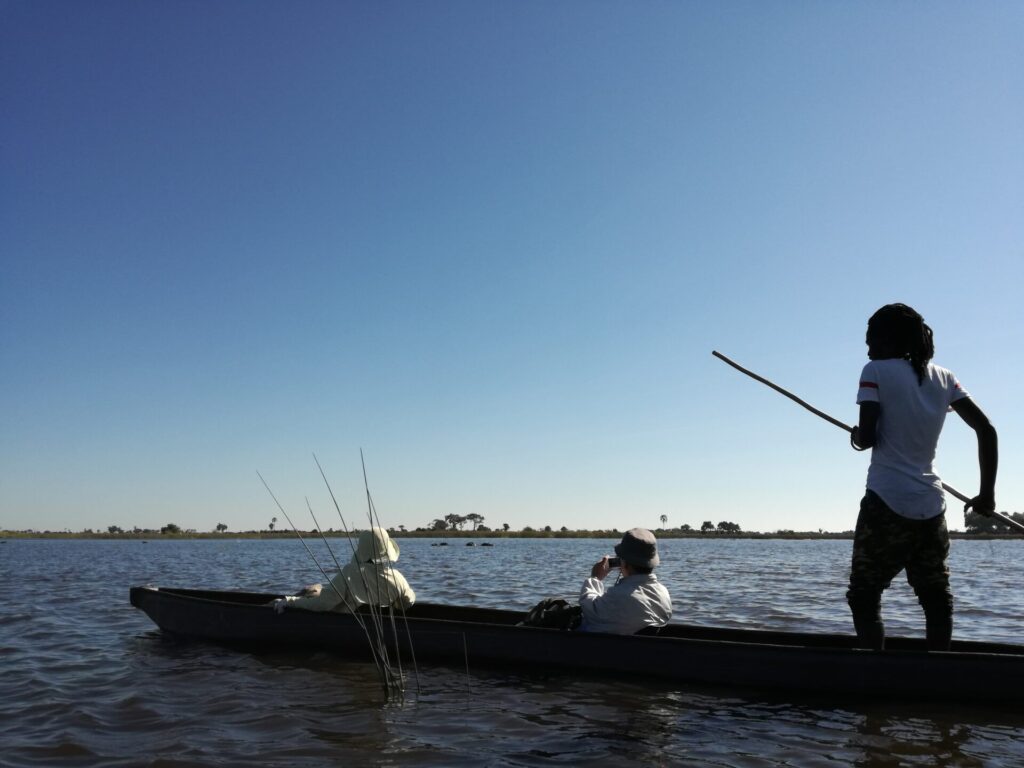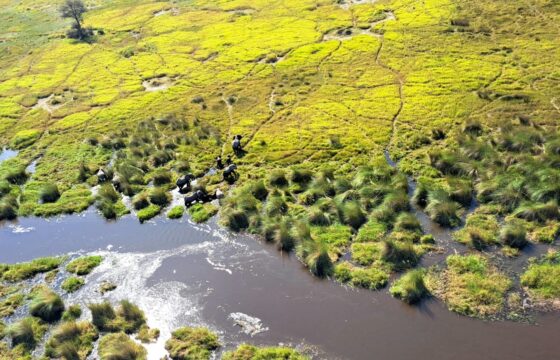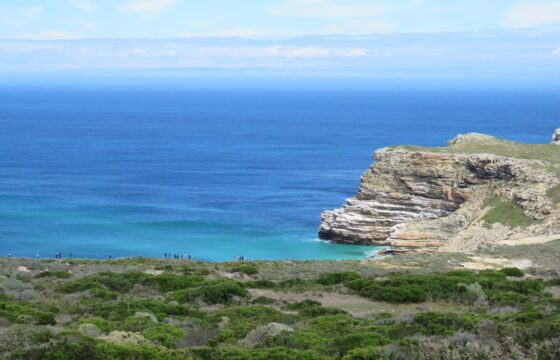
Meandering through narrow waterways crafted by hippos, slipping between reeds of papyrus, the Mokoro Boat offers an immersive journey, almost as if you’ve become one with the hippo, seeing the world from its perspective.
With no engine noise to disturb, the soundtrack is composed of bird calls, the rustle of leaves in the breeze, and the soothing sound of water parting as the boat glides forward. It’s a space where you feel seamlessly integrated with nature.
When one thinks of the Okavango Delta, the iconic Mokoro Boat immediately comes to mind. Crafted from a hollowed-out log resembling a banana, this wooden canoe is the daily mode of transport for villagers around the Delta.
Due to the shallow depths and marshy terrain of the Delta, paddling with oars isn’t feasible. Instead, passengers stand at the edge of the boat, propelling it forward with long poles, skillfully navigating the waters.
However, maintaining balance is crucial due to the boat’s length. The boatman, known as a poler, along with two passengers, constitutes the safe capacity for cruising. Villagers occasionally use these boats to transport large quantities of goods, necessitating impeccable balance. Yet, for the born-and-bred polers of the Okavango Delta, it’s second nature.

Simultaneously, this area is a treasure trove of wildlife. Many hippos inhabit the shallow wetlands, observing us from the water’s surface. Sometimes, elephants may even cross our path. Considering the distances involved, skillful maneuvering and the occasional evasive action may be necessary.
In any case, entrusting the operation to seasoned polers, we can comfortably sit back in the Mokoro Boat, experiencing the natural wonders of the water’s edge!
From a conservation perspective, wooden boats are no longer in use, replaced by fiberglass ones, ensuring travelers continue to be guided into this mystical world today.



